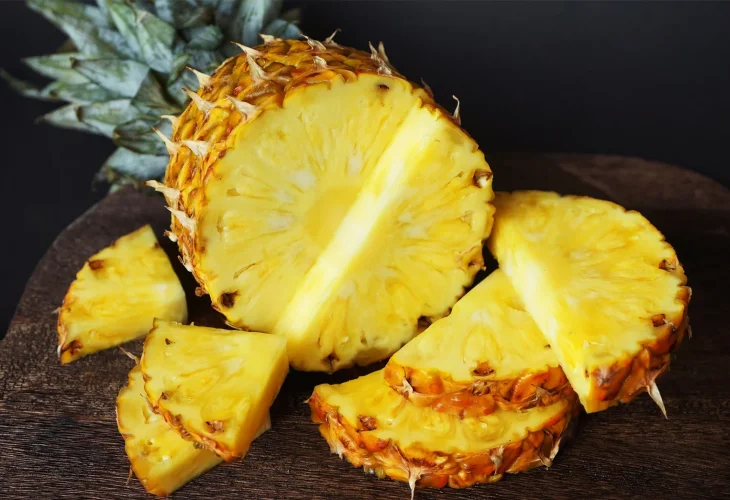Health and Nutrition
Why Pineapple Burns Your Mouth- and How to Prevent It
Experts Explain the Role of Bromelain and Simple Tricks to Enjoy Pineapple Without the Sting
 (Photo: shutterstock)
(Photo: shutterstock)“Pineapple definitely causes a tingling sensation in the mouth- but what are we supposed to do, stop eating it? That’s ridiculous,” joked one user in an online discussion about the mouth-tingling and burning sensation some people experience after eating pineapple.
Food scientists have found that an enzyme bromelain, found naturally in pineapple, is responsible for this reaction. “Bromelain breaks down proteins in your mouth, allowing the fruit’s acidity to cause irritation,” explained Dr. Michael P. Sheehan in an interview with SELF magazine.
Researchers also discovered that pineapple contains microscopic spiky fibers, which can cause tiny abrasions on the tongue and gums, amplifying the burning sensation. “These structures, known as raphides, are part of the fruit’s natural defense system,” Dr. Sheehan added. “They’re sharp enough to create micro-scratches that let the acidity do its thing.”
Despite the discomfort, there are ways to reduce that tingling effect. Experts recommend avoiding the pineapple core, where bromelain is most concentrated. You can also grill or cook the fruit, as bromelain becomes inactive at temperatures above 70°C (158°F). “If you’re eating canned pineapple, you won’t experience the tingling at all, because the high heat used in processing deactivates the enzyme,” reported The Healthy, a wellness site that addressed the subject.
Another method to ease the sensation is to pair pineapple with dairy products such as yogurt or ice cream. The proteins in dairy react with bromelain and neutralize its effects. “That’s why eating a pineapple smoothie with yogurt feels totally different than drinking fresh pineapple juice,” researchers noted.

